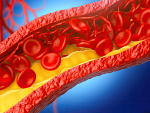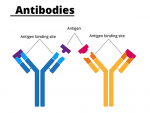Displaying items by tag: school of medicine
Any woman can be at risk for any gynecologic cancer. Risk tends to increase with age, and there is always a heightened possibility of cancer due to family history or race.
Tagged under
A UAB infectious diseases physician breaks down what you need to know about flu, RSV and COVID as people navigate colder months and have exposure to these viruses.
Tagged under
The regimen — which relies solely on already FDA-approved medications — showed remarkable success in Parsons model case series.
A UAB study evaluating the treatment of severe dyslipidemia showed that only one in three individuals with severe dyslipidemia took lipid-lowering medications without any improvement in the treatment rates over 10 years.
Tagged under
The MyLupus app is a patient-friendly, patient-focused decision-aid tool for people from all backgrounds with moderate to severe lupus.
Tagged under
Tagged under
These findings could lead to non-invasive, low-cost tests and the early diagnosis of the disease, which progresses for decades before symptoms of dementia emerge.
Tagged under
UAB Hospital practice areas were honored with the “Best Hospital” designation, including cancer care, heart care, stroke care, minimally invasive surgery, comprehensive breast care, mammograms, obstetrics and women’s services.
Tagged under
Tagged under
Tagged under
An additional $5 million gift from Heersink will allow recruitment of top-tier faculty and enhance research efforts at UAB.
Tagged under
The site-directed addition of a polymer on the antibody trastuzumab helped this cancer-fighting antibody cross the blood-brain barrier.
Tagged under
As there is no current treatment for acute and recurrent acute pancreatitis, Dudeja hopes this grant will provide hope for those suffering with the disease.
Kelsey Hatcher has a rare double uterus and was pregnant with a baby in each. With the help of UAB, she delivered two healthy “twin” girls 10 hours apart — and on separate days.
Tagged under
Tagged under
A UAB expert is offering some of their top tips on how to avoid holiday heart syndrome and enjoy a heart-healthy holiday season.
Tagged under
UAB Medicine hosted a ribbon-cutting ceremony to commemorate the new NICU Bookworms vending machine. United States Representative Terri A. Sewell (AL-07) joined the ceremony and read to infants in the UAB RNICU and Children’s of Alabama NICU.
Tagged under
Burn survivor who received innovative “spray-on skin” treatment now giving back to UAB burn patients
Tagged under
This holiday season, one UAB expert suggests looking for ways to invest in time with elderly loved ones versus investing in gifts.
New findings from UAB researchers indicates that preventable environmental factors like repeated blows to the head in contact sports and pesticides and herbicides account for a substantial number of Parkinson’s disease cases.
Tagged under



















